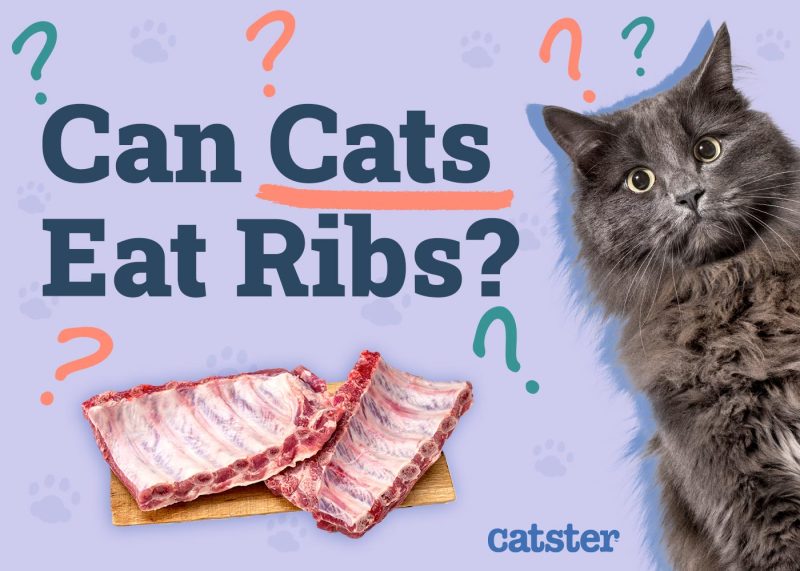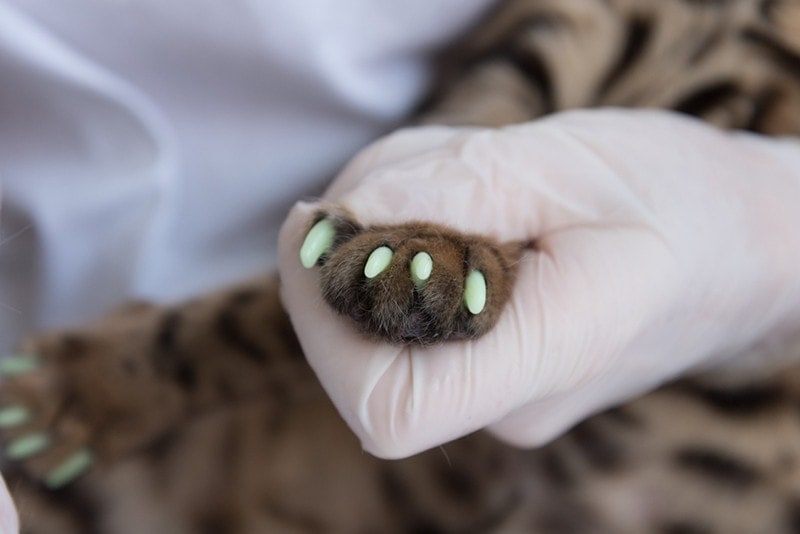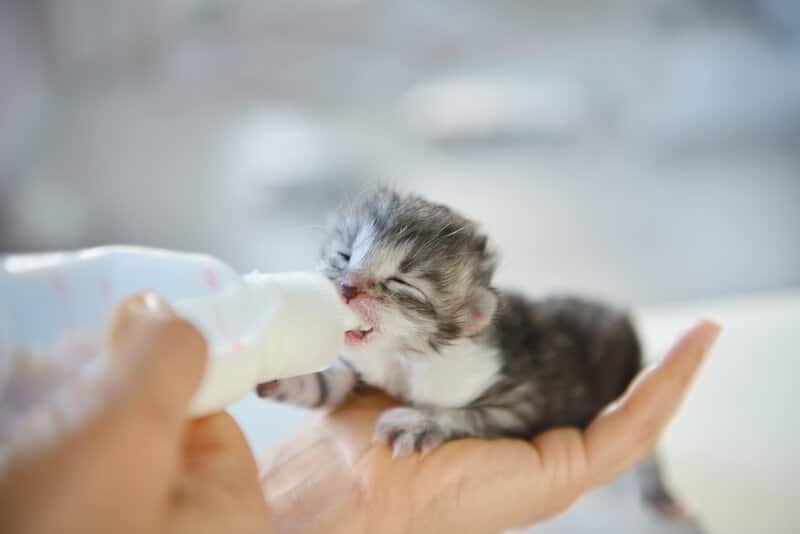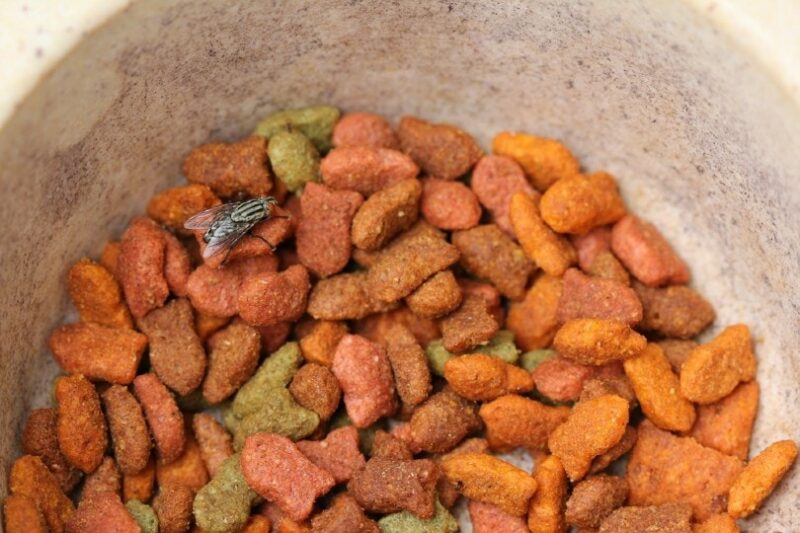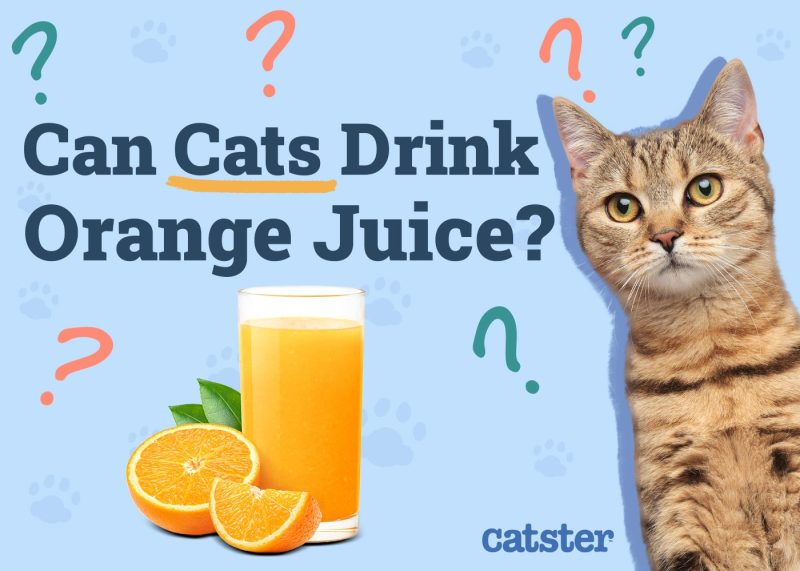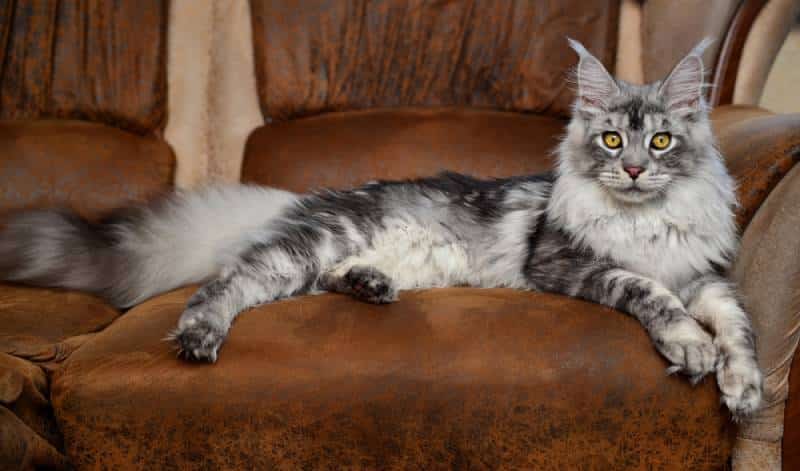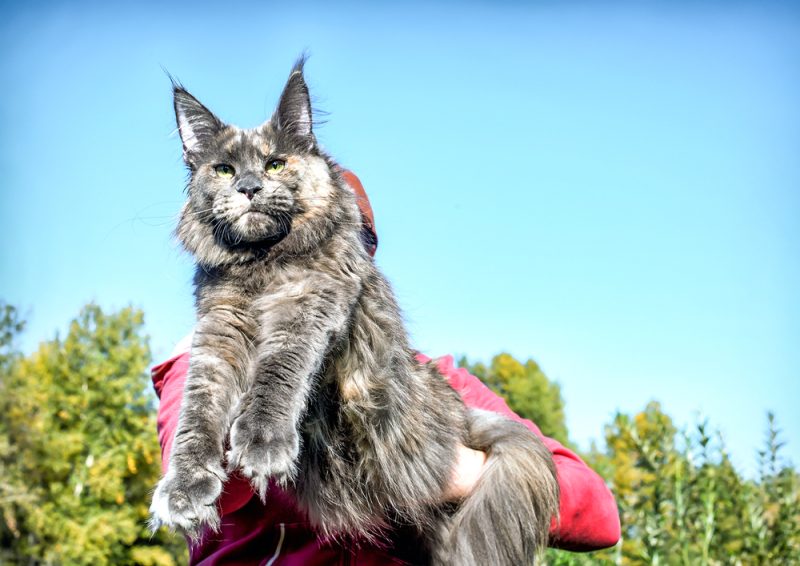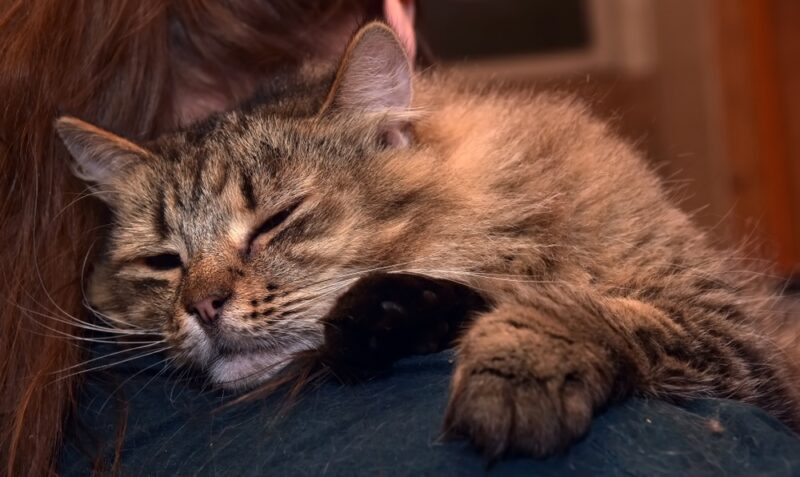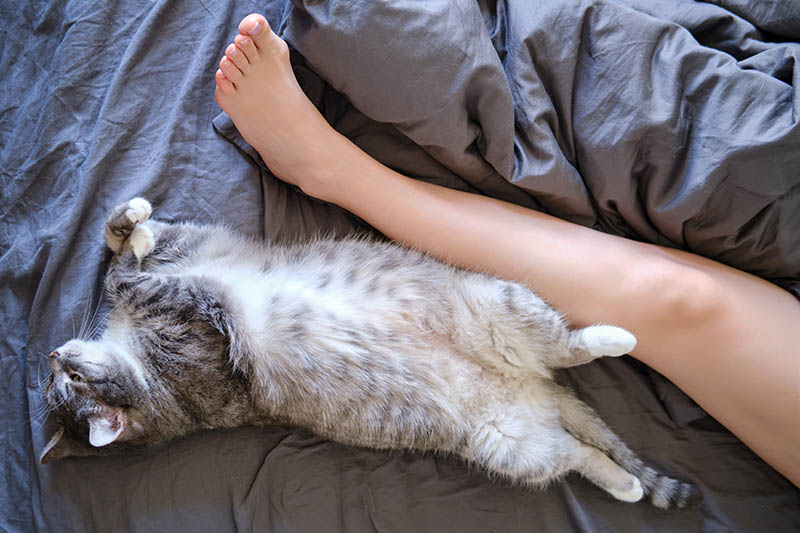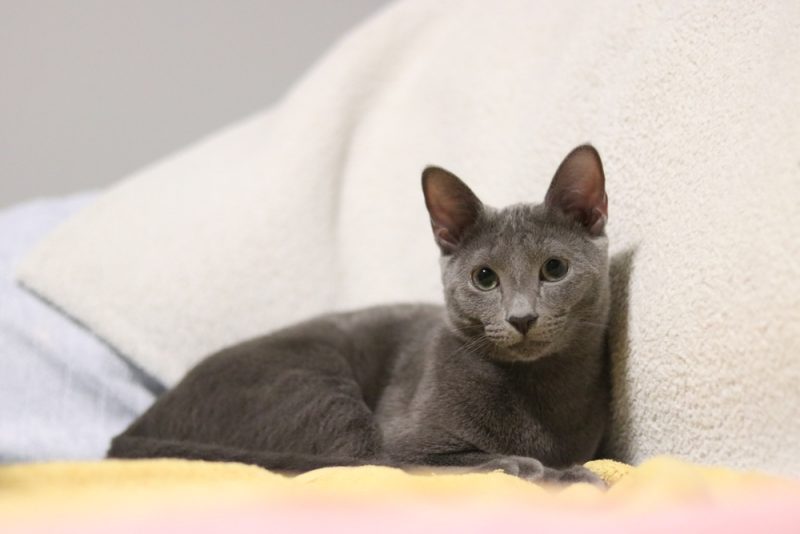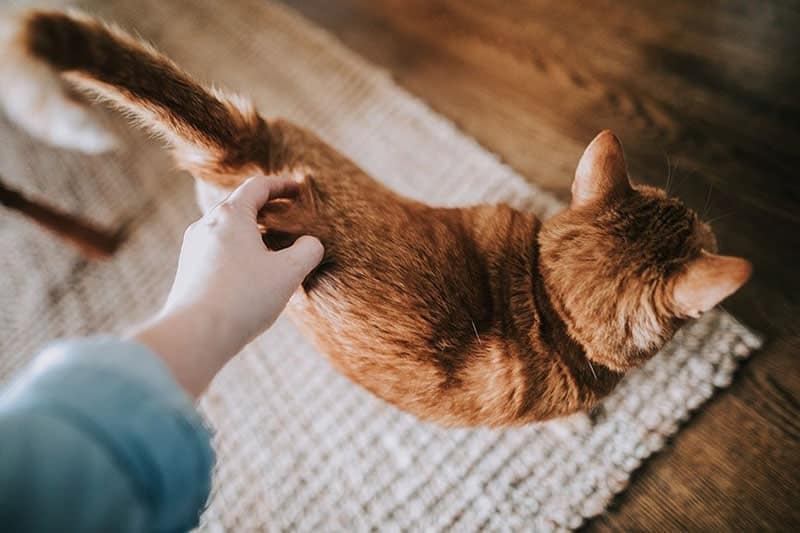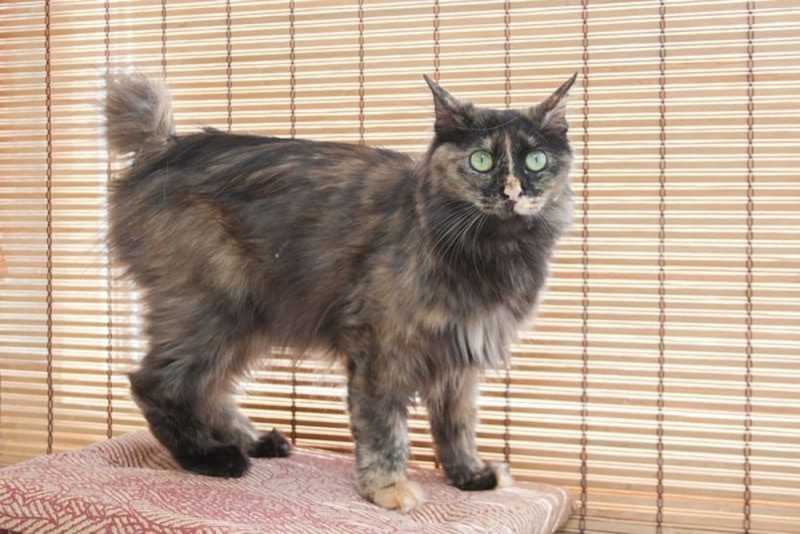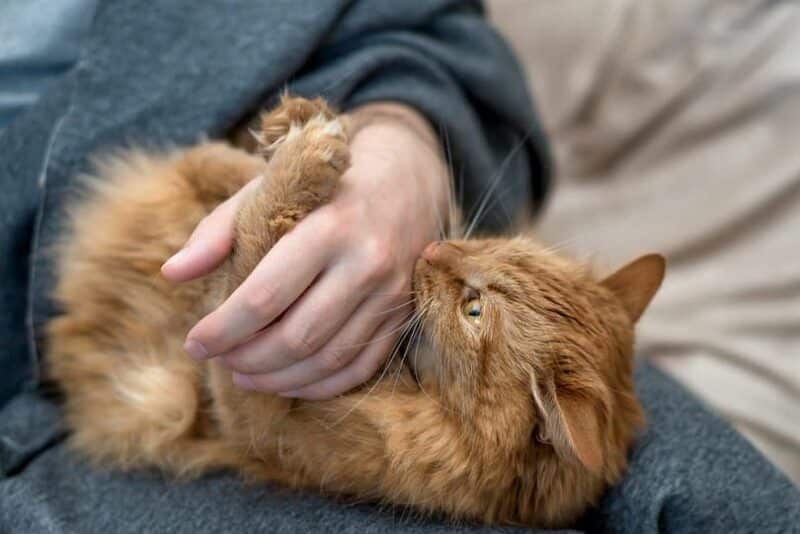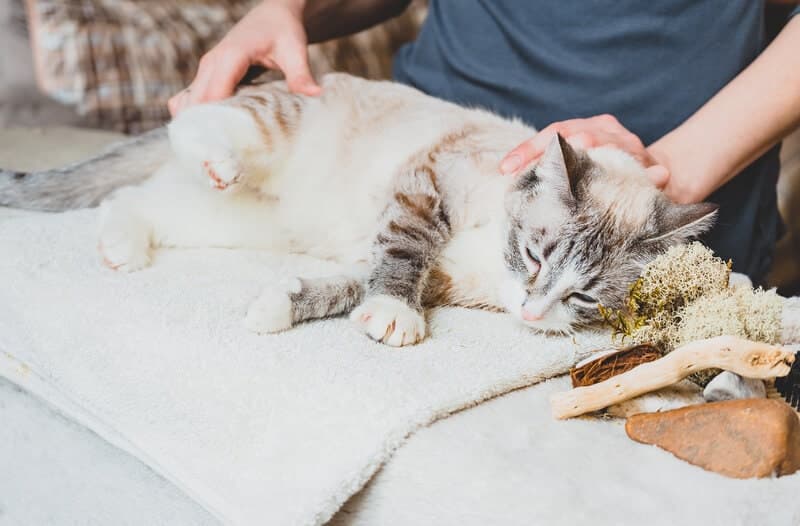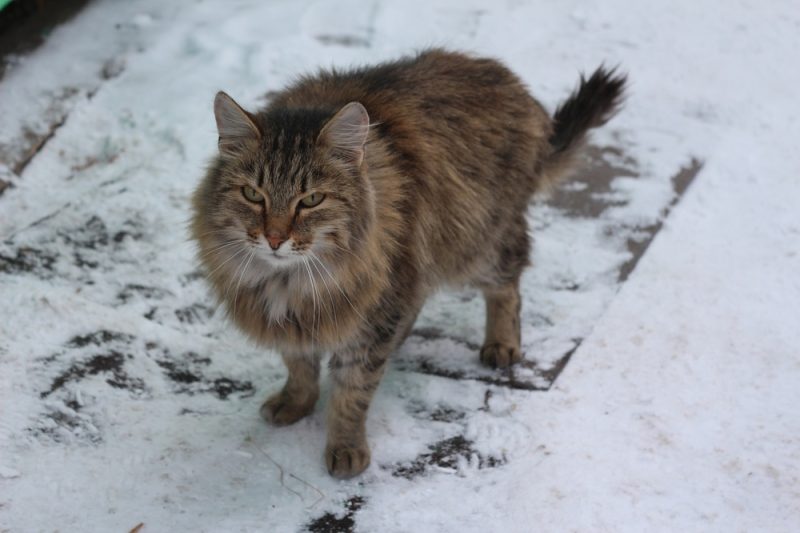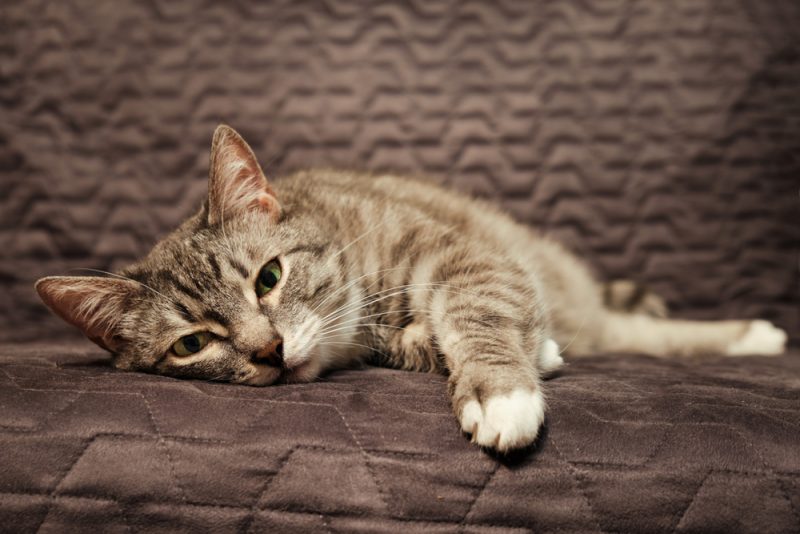Barbeques are one of the most valued traditions in America—families and friends across the country regularly gather for backyard barbeques. However, no backyard party would be fun without our beloved pets keeping us company by the grill. They always smell the delicious food and manage to find a few people who are willing to share their portions.
If you find yourself in a situation where you are tempted to offer a piece of your pork rib to your cat, you must be wondering if this meat is actually safe for them to consume. Many factors influence this, but avoiding feeding our pets spicy, seasoned, or salty foods is always best. However, plain meat from cooked pork ribs is generally safe for our cats to consume as long as you remove the bones.
Read on below for more details on the safety of feeding your cat ribs.

Ribs Nutritional Facts
While you may be tempted to offer your cat some ribs at your barbeque party, you must first learn about their nutritional values. Ribs are high in fat but are a decent source of animal protein. Ribs are rich in minerals, especially iron, magnesium, and zinc. Pork ribs also have cartilage, the protective tissue connecting bones and joints, and cartilage contains glucosamine and chondroitin, which promotes better joint health.
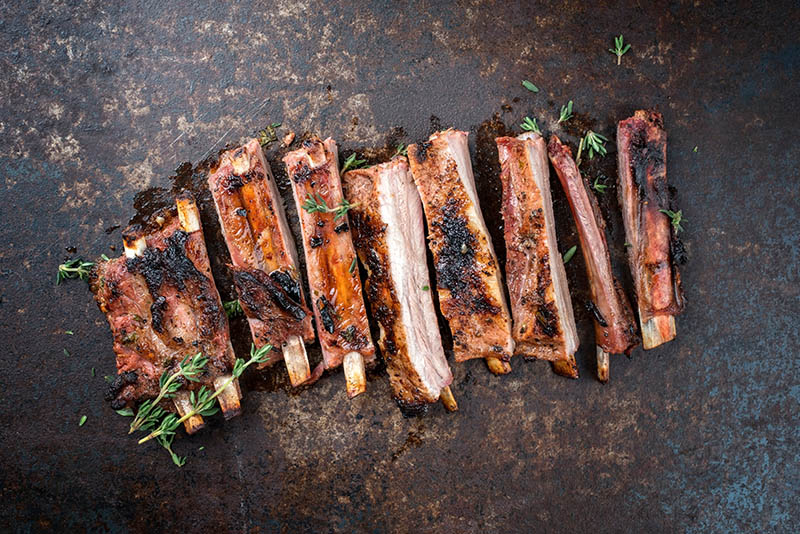
Ribs Nutritional Values Per 100 g:
| Energy: | 351 kcal/1,470 kJ |
| Protein: | 22.8 g |
| Total fat: | 28.1 g |
| Carbohydrates: | 0 g |
| Fiber: | 0 g |
| Sodium: | 64 mg |
| Iron: | 2.37 mg |
| Magnesium: | 20 mg |
| Zinc: | 5.45 mg |

Are Ribs Safe for Cats to Consume?
Since ribs have a high-fat content and are high in calories overall, they are not the best food to offer your cat regularly. Even though they are a good source of animal protein and contain some important vitamins and minerals, your cat should get all their essential nutrients from a good quality balanced cat food.
Feeding cats rib meat as an occasional treat is generally safe when offered in the right amount and prepared properly beforehand. However, when adding new foods to your cat’s diet, it’s a good idea to get the go-ahead from a vet, especially if they have any underlying health conditions.
Need veterinary advice but can't get to the clinic? Catster recommends PangoVet, our online veterinary service. Talk to a vet online and get the answers and advice you need for your cat without having to leave your living room — all at an affordable price!

Ribs, of course, won’t be suitable for cats with food allergies to pork or those on prescription diets. Because of the high fat and calorie content, it is also not advisable to feed ribs to overweight cats and cats prone to conditions like pancreatitis.
You can read more below about preparing pork ribs and offering them to your cat to reduce any risks of adverse effects.
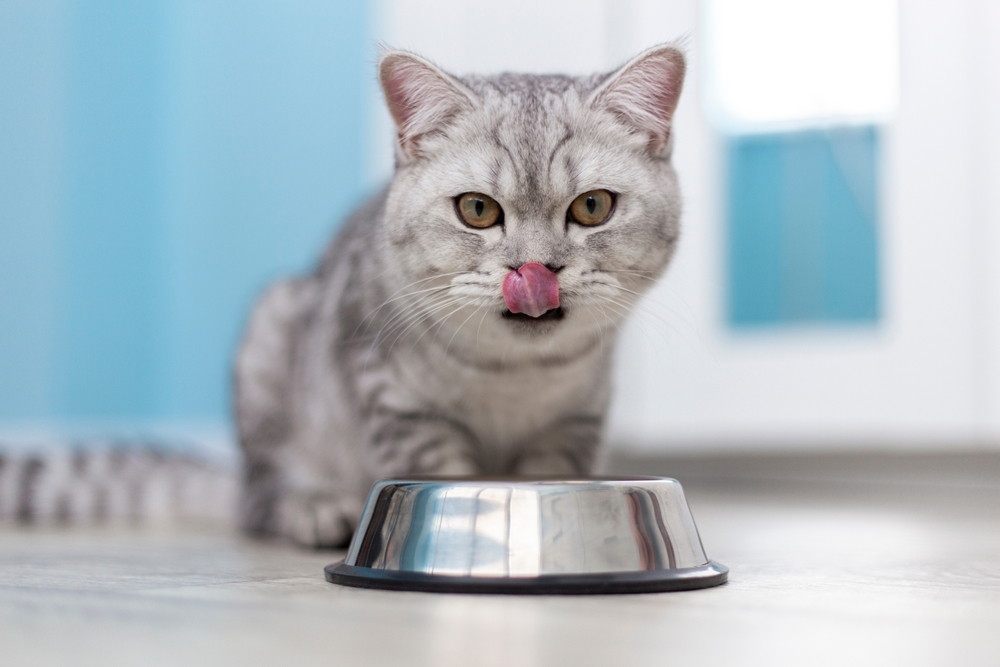
How to Safely Offer Ribs to Your Cat
While we’ve mentioned that ribs are usually safe to feed your cat, it is crucial to understand all the steps you must take to ensure their safety. First and most important, ribs are a choking hazard. If you intend to give your cat a piece of pork rib to nibble on, you must carefully monitor your cat. Pork bones can crack and splinter when your pet chews on them, leading to severe damage to the esophagus or intestines. We advise you to avoid feeding your cat these bones altogether and offer only the meat.
Another thing to remember is that for your cat to enjoy ribs safely, it must be prepared without salts or seasonings. This is why barbeque ribs are not safe for your cats to consume. They are usually made with sauces, herbs, and seasonings, making them unsafe. Certain ingredients in these sauces, such as onion or garlic powder, can cause severe digestive upset and even lead to anemia.
We also advise you to stay clear of raw pork ribs. Raw and undercooked meat carries a high risk of trichinella parasites and other bacteria and pathogens. Before offering pork ribs to your cat, you must cook the meat thoroughly, and as we already said, without adding salts, sauces, or seasonings.

Final Thoughts
While pork ribs are delicious, they are not ideal to give to your cat regularly. Since our pets’ stomachs are much more sensitive than our own, feeding them salts and seasonings can cause severe gastrointestinal upset, so when preparing pork ribs, avoid these ingredients. Most importantly, before offering pork ribs to your cat, make sure to remove any bones, as they can be a choking hazard for your cat.
So, while a small nibble on a piece of pork rib without any sauces or seasoning may be fine occasionally, we recommend that this not be a regular treat for your feline.
Featured Image Credit: VasiliyBudarin, Shutterstock
